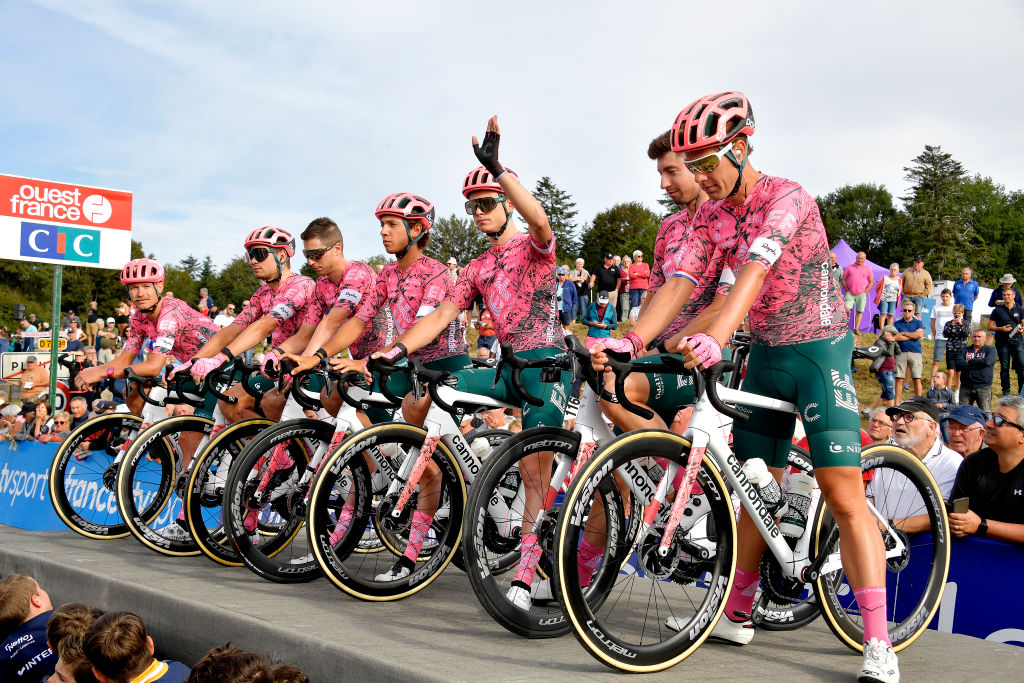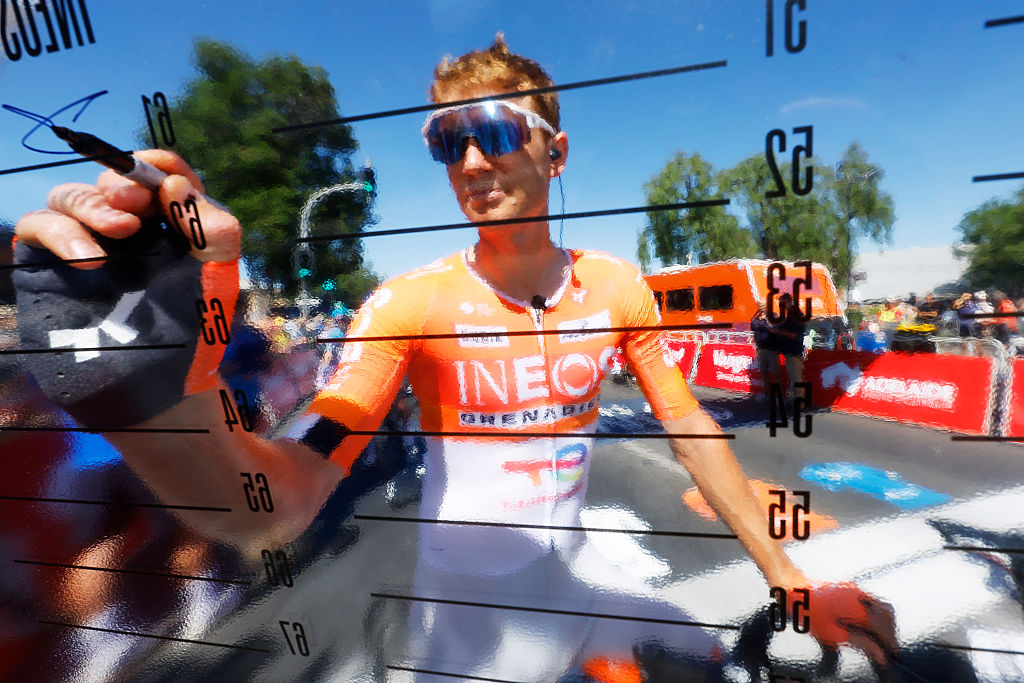Vaughters: UCI WorldTour points system is promotion or death
EF Education-EasyPost sending stacked teams to Grand Prix de Québec, Montréal in points hunt

The latest race content, interviews, features, reviews and expert buying guides, direct to your inbox!
You are now subscribed
Your newsletter sign-up was successful
Jonathan Vaughters, the CEO of the EF Education-EasyPost team was unequivocal in his criticism of the UCI's WorldTour promotion/relegation system, calling it "promotion or death" while speaking to former rider Christian Vande Velde during the NBC/Peacock Vuelta a España stage broadcast on Tuesday.
EF Education-EasyPost are currently 16th in the 2020-2022 team rankings that decide the sporting criteria for only the top 18 teams to be included in the 2023 WorldTour, having clawed their way out of 18th over the past two months of racing.
Although the team have turned their fortunes around, Vaughters blamed the points structure - which heavily favours one-day races at the ProSeries and 1.1 level compared with Grand Tour stages - and the pandemic for the team's earlier position, saying the team has been penalized by a decision to limit their calendar amid pandemic in 2020 to keep the team riders, staff, and the community safer.
"Ultimately, that really hurt us in the points tally, that decision, which was made for health reasons, hasn't worked out so well for us," Vaughters said during the broadcast. "So now we're having to chase around the points in all the races and sometimes sending - bluntly speaking, we sent a much better team to the races in Maryland, Québec and Montréal than we did for the Vuelta. And the reason for that is the point system."
EF Education-EasyPost weren't the only team to limit their racing before vaccinations were available. BikeExchange also skipped the March 2022 races along with UAE Team Emirates, Astana, Movistar, Ineos and the now-defunct CCC team.
"We just felt like it wasn't particularly the greatest idea just to chase around every last little race that we could, and that decision has really come back to bite us. It's unfortunate."
After the Maryland Cycling Classic, EF Education-EasyPost extended their lead over BikeExchange-Jayco and Movistar and sit more comfortably in 16th, and Vaughters said he isn't worried about the team being relegated.
The latest race content, interviews, features, reviews and expert buying guides, direct to your inbox!
"We've got a great team for Québec and Montréal, we'll score some points with Rigo [Urán] at the Vuelta. I think we're in a good position. But - look at a team like Israel - there are very few ways for them to make it back into the top 18. And Sylvan Adams, the investor in Israel is putting a lot of money into the sport and he's just getting kicked in the shins by the governing body. I don't like to like to see that. They're a good team."
Will there be another legal challenge?
The UCI originally was going to implement the promotion/relegation system for the 2020 WorldTour, but the risk of a legal challenge from teams successfully delayed the scheme because the UCI attempted to retroactively apply the points system. That meant teams raced in 2017 and 2018 without understanding the importance of the points.
A similar legal challenge is a distinct possibility for the 2023 WorldTour. The UCI indicated to teams in 2020 that they would analyse how the pandemic would affect the rankings.
A letter the UCI sent to the team on 5 May 2020, stated "... the UCI will analyse, as soon as possible, and in any case, at the end of the 2020 season the consequences of the situation linked to COVID-19 on the various rankings" but, according to Vaughters, they never followed up.
"They never decided to implement it from a standpoint of relegation. In fact, that wasn't really made clear to anyone until this year, because in 2020, the UCI had sent out a note saying that they weren't going to implement it because of the pandemic," Vaughters said.
(Cyclingnews' queries to the UCI on whether they informed teams the relegation system was going forward have not yet been answered.)
He echoed the comments of BikeExchange-Jayco director Matt White, rider Simon Yates, and Movistar boss Eusebio Unzué all of whom have criticized the scheme.
"It's been pretty confusing to all the teams as to what's going on," Vaughters complained. "I don't think the system is particularly well designed - there are more points on tap to win some really little races in Belgium, north of France, some 1.1's, than there are to win a stage of the Tour de France, and certainly way more than to win a stage of the Vuelta. In the Vuelta, after fifth place, there are zero points. I don't know that anyone ever seriously looked at this point system from a statistical modelling perspective."
The UCI have had to watch as riders like Alejandro Valverde and most of the Spanish team have been forced to skip their marquee event, the UCI Road World Championships, to remain in Europe to chase points, all to avoid relegation and ensure their teams stay alive.
"It's pretty sad because whatever team does get relegated, that puts them at severe risk with all of their sponsors. The contracts with the riders, the contracts with the sponsors, all of those are predicated on the team being a WorldTour team. If all of a sudden, you're a Pro Continental team, none of your contracts are valid anymore.
"In some sports promotion/relegation is no big deal because you're relegated and you get a big fat parachute check and you get every opportunity to work your way back in - it's no big deal.
"In cycling, it's not promotion/relegation, it's promotion/death."

Laura Weislo has been with Cyclingnews since 2006 after making a switch from a career in science. As Managing Editor, she coordinates coverage for North American events and global news. As former elite-level road racer who dabbled in cyclo-cross and track, Laura has a passion for all three disciplines. When not working she likes to go camping and explore lesser traveled roads, paths and gravel tracks. Laura specialises in covering doping, anti-doping, UCI governance and performing data analysis.
